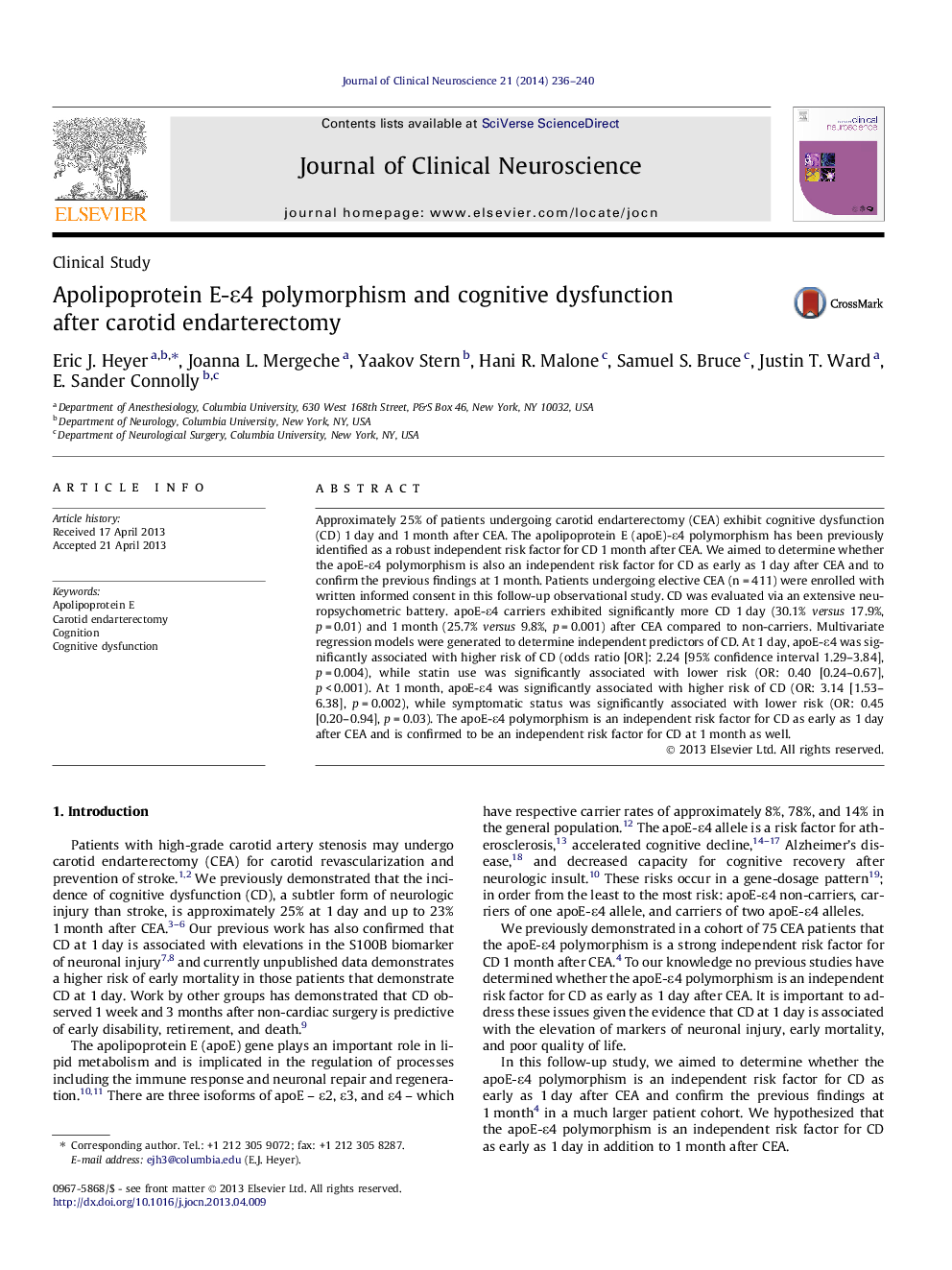| Article ID | Journal | Published Year | Pages | File Type |
|---|---|---|---|---|
| 3059228 | Journal of Clinical Neuroscience | 2014 | 5 Pages |
Approximately 25% of patients undergoing carotid endarterectomy (CEA) exhibit cognitive dysfunction (CD) 1 day and 1 month after CEA. The apolipoprotein E (apoE)-ε4 polymorphism has been previously identified as a robust independent risk factor for CD 1 month after CEA. We aimed to determine whether the apoE-ε4 polymorphism is also an independent risk factor for CD as early as 1 day after CEA and to confirm the previous findings at 1 month. Patients undergoing elective CEA (n = 411) were enrolled with written informed consent in this follow-up observational study. CD was evaluated via an extensive neuropsychometric battery. apoE-ε4 carriers exhibited significantly more CD 1 day (30.1% versus 17.9%, p = 0.01) and 1 month (25.7% versus 9.8%, p = 0.001) after CEA compared to non-carriers. Multivariate regression models were generated to determine independent predictors of CD. At 1 day, apoE-ε4 was significantly associated with higher risk of CD (odds ratio [OR]: 2.24 [95% confidence interval 1.29–3.84], p = 0.004), while statin use was significantly associated with lower risk (OR: 0.40 [0.24–0.67], p < 0.001). At 1 month, apoE-ε4 was significantly associated with higher risk of CD (OR: 3.14 [1.53–6.38], p = 0.002), while symptomatic status was significantly associated with lower risk (OR: 0.45 [0.20–0.94], p = 0.03). The apoE-ε4 polymorphism is an independent risk factor for CD as early as 1 day after CEA and is confirmed to be an independent risk factor for CD at 1 month as well.
